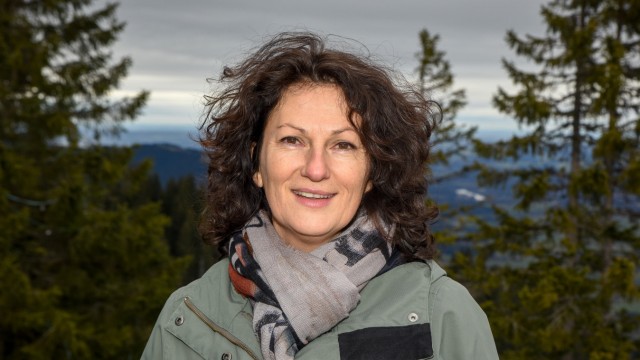Skiing at Brauneck will be more expensive again next winter. Adults have to pay 3.1 percent more for the day ticket in the 2023/2024 season compared to the previous year. This means that the one-day ski pass has increased by a total of 18 percent since 2022. Back then, adults paid 42 euros, now they have to shell out 49.50. The season ticket for an adult in the Alpen Plus network, to which Brauneck belongs, has increased in price from 420 to 444 euros in advance sales compared to the previous year, i.e. by 5.7 percent. In the last pre-pandemic winter of 2019/2020, the price was 360 euros.
Tölzer Land manager Andreas Wüstefeld remains optimistic about winter tourism in the region. Skiing is just one of many options for the guest, he says.
(Photo: Harry Wolfsbauer)
Will this development lead to fewer winter sports enthusiasts and guests in the region? Andreas Wüstefeld assesses the scenario calmly for the tourism location. “Skiing is not a cheap sport,” says the head of the Tölzer Land organization. But consumer prices are generally rising and everything is becoming more expensive. A commercial company like Brauneck- und Wallbergbahnen GmbH has to react to this.
Ultimately, it is a business decision by the lift operator. On the other hand, they behaved very fairly with preferential conditions for sports clubs, for example. And the Brauneck ski area uses 100 percent green electricity. Given that day tickets sometimes cost more than 80 euros in the neighboring Alpine countries, he considers the pricing on Lenggries’ local mountain to be appropriate and tolerable, says Wüstefeld. “Where else can you find prices under 50 euros,” he asks.
The Brauneck offers its guests 34 kilometers of slopes. This makes the ski area one of the ten largest in Germany. The operators have to spend a six-figure amount just to make snow. The diesel fuel for the snow groomers also costs a lot of money. “Inflation is hitting us,” says Antonia Asenstorfer, managing director of Brauneck- und Wallbergbahnen GmbH and Alpenbahnen Spitzingsee. “We have to pass this on moderately.”
This year, day tickets should deliberately remain below the 50 euro threshold. After all, the prices for this were only increased significantly last season by around 15 percent – also because energy prices rose massively. However, such a high price jump should, as far as possible, remain the exception, says Asenstorfer. This year they didn’t want to burden customers excessively.

Since the beginning of 2022, Antonia Asenstorfer has shared the managing director position at Brauneck with Stefan Schnitzler.
(Photo: Harry Wolfsbauer)
In fact, consumer prices have risen sharply in recent years, rising by 3.1 percent in 2021, according to the Federal Statistical Office. In 2022 it was 7.9 percent across Germany. The forecasts for the current year are 6.1 percent. Compared to September 2022, fuels have actually become six percent cheaper again.
“Our guests are multi-optional,” says Wüstefeld
In any case, Wüstefeld does not fear that the region will lose masses of tourists if ski pass prices continue to rise. “I see it relatively calmly,” he says. The typical winter guest doesn’t book a week just for skiing. “Our guests are multi-optional,” says the head of Tölzer-Land-Tourism. They like to take part in winter sports, but they go hiking or cycling when there isn’t enough snow. In view of the current crises in many parts of the world, the region could benefit from the fact that vacations in one’s own country represent security, says Wüstefeld. In addition, the Isarwinkel, with its largely intact townscape, has a major advantage over other, intensively developed tourist destinations.
The Tölzer Land boss also believes that the light factor is generally undervalued. According to a study by Munich University of Applied Sciences, more than half of city dwellers prefer to go out into the sun in the dreary gray of winter, says Wüstefeld. And at this time of year they appear much more often in the mountains like in the Isarwinkel than in the lowlands.
Meanwhile, advance sales for season ski passes in the Alpen Plus network (Brauneck, Wallberg, Spitzingsee and Sudelfeld) have begun. This year, tickets are available at reduced rates for a week longer than usual: until November 24th. Brauneck managing director Asenstorfer is particularly excited to see how guests will accept the ski pass combination ticket with local public transport. After all, the entire district belongs to the MVV from December.

